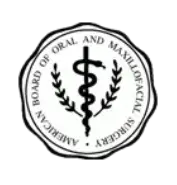Surgical Instructions
Instructions Before Intravenous Anesthesia Sedation
If you are going to be sedated (where we put you to sleep) for your procedure, it is important you follow these directions to ensure successful treatment. Please note that not all procedures involve sedation. If you are not sure if this applies to you, please ask.
General
- Do not eat or drink any liquids (including water) for six hours prior to your appointment. If you have a morning appointment, please do not eat or drink after mid-night.
- Do not smoke any tobacco products for at least 12 hours before surgery. Ideally, cut down or stop smoking as soon as possible prior to the day of surgery – nicotine and tobacco interfere with the body’s natural healing capability.
- A responsible adult must accompany the patient to the office, remain in the office during the procedure, and drive the patient home.
- Do not plan to drive or operate any machinery or make important decisions for the 24 hours following anesthesia experience.
Clothing
- Do wear loose fitting clothing with sleeves which can be rolled up past the elbow, and low-heeled shoes.
- Contact lenses, jewelry, and dentures must be removed at the time of surgery.
- Do not wear lipstick, excessive makeup, or nail polish on the day of surgery.
Medications & Health
- If you have an illness such as a cold, sore throat, stomach or bowel upset, please call our office for an assessment.
- If you take routine oral medications, please check with Dr. Nkungula prior to your surgical date for instructions.
Post – Operative Mouth Care
Care of the mouth following a surgical procedure is essential in the healing process.
Bleeding: Some bleeding and oozing is normal for several hours after your procedure.
- Avoid spitting, use of a straw and smoking.
- Bite down on gauze pack in mouth for 20-30 minutes and then discard or change if necessary.
- If bleeding is more than slight, bite down firmly on a moistened tea bag for 30 minutes.
Discomfort: If prescription was given, use as directed.
- Take prescription as soon as you get home and before local anesthesia (numbing) wears off.
- Do not take pain medication on an empty stomach as it may cause nausea.
- If no prescription was given, over-the-counter medications (e.g. Aspirin, Advil) can be taken.
Swelling: Some degree of swelling is normal and can be minimized with the use of cold and hot gel pack – the table below is a guide.
| Cold place in freezer for 30 minutes |
Hot 10-15 seconds in microwave |
|
| When used? | Day 1-2 | Day 3 onwards |
| How often? | 2-3 times daily | 2-3 times daily as needed |
| Why? | Control and manage swelling | Bone and gum healing and repair |
Diet: A soft or liquid diet is recommended for the first few days following surgery.
- Until local anesthesia (numbness) wears off, be careful chewing to prevent biting the numb area.
Care of mouth: Do not rinse your mouth vigorously for the first 24 hours after surgery as vigorous rinsing interferes with clot formation and slows healing
- After 24 hours, begin gentle warm salt water rinses for one week at extraction site and resume gentle brushing of remaining teeth.
- Avoid use of alcohol, smoking or carbonated drinks for 1-2 days after surgery.
Note: Antibiotics may decrease the effectiveness of birth control medications. Additional methods of birth control should be used while on antibiotics.
Implants are placed beneath the jawbone, so there is not much to see, however, proper care will ensure the implant integrates quickly and successfully with the surrounding bone, creating an ideal point for the placement of a manufactured tooth. To ensure a successful outcome, please observe the following guidelines:
- Do not disturb the wound
- Avoid rinsing, spitting, or touching the wound for 3-4 days post-placement
- If there is any residual bleeding or oozing, bite down on gauze pad placed directly on the implant site for 30 minutes.
- Swelling: Slight swelling is possible around the implant site and can be expected. An ice bag applied directly to the cheek 3-4 times a day can help to minimize swelling during the first 36 hours.
-
Pain: A pain medication will be prescribed to you, and it is important to follow the directions of your prescription. For moderate pain the following can help: Antibiotics: these are usually prescribed. Be sure and to take the full course of antibiotics as prescribed.
- Tylenol or Extra Strength Tylenol every 3.4 hours
- Ibuprofen (Advil or Motrin) 200 mg tablets taken 2-3 times a day may also be taken.
- Do not take any of the above medication if you are allergic
- Oral Hygiene: Be sure and follow directions of the oral rinse solution (usually Peridex) that is prescribed. It is also important to keep the area and mouth clean with regular brushing and flossing
Placement of dental implants can usually be done under local anesthesia, and experience shows that implant placement is far less invasive than having a tooth extracted.
Most people cannot feel the implant and there is not a whole lot to see, however beneath the gum an important process is going on – the implant is fusing with the surrounding jaw bone through a process called ossiointegration. This process can last anywhere from 3-6 months and depending on the type of implant, we have specialized equipment to measure the success of integration.
It is important to keep the area clean and avoid disturbing the area. Depending on treatment approach, it is sometimes possible to immediately attach a man made tooth to the implant, while other times the doctor may prefer to have a healing time usually of 4-6 months before a tooth can be attached.





4.9 Stars
based on 134 reviews
5 Stars
based on 11 reviews
5 Stars
based on 11 ratings